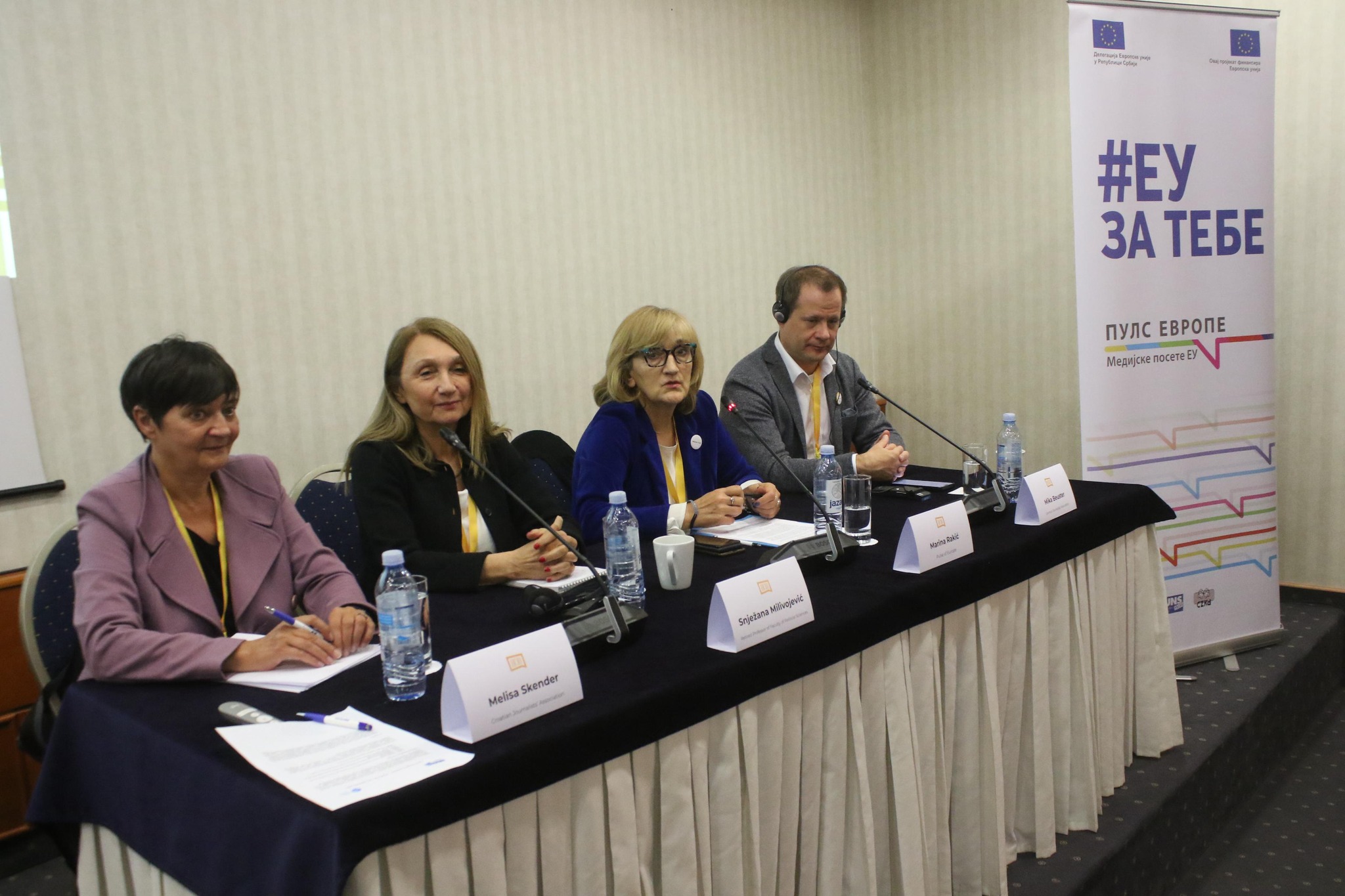European Media Freedom Act - panel on recommendations for the Western Balkans
As part of the regional conference on media freedom, the "Pulse of Europe - EU media trips" project has organised, in cooperation with the Independent Journalists’ Association of Serbia, a panel discussion on the European Media Freedom Act (EMFA), in Belgrade on 30 September 2025.
The panel "European Media Freedom Act and freedom of the media in Europe - lessons and recommendations for the Western Balkans" brought together representatives of journalist associations from EU member states (Croatia and Germany), as well as local experts, in order to present this law in detail to the media community in Serbia, the adoption of which in the European framework is considered revolutionary.
EMFA, an act that has been binding in the European Union since August, represents a good basis for the protection of media pluralism and media independence, as well as a platform for advocating a better media space, but progress on that front will take time, the panellists agreed.
The president of the German Journalists' Association, Mika Beuster, said that even in Germany, which is among the top ten in terms of media freedom on all lists, the situation is worsening and that EMFA provides the minimum to enable press freedom.
Beuster said that social and political processes do not value the freedom of the press as much as they should, and he hopes that the implementation of the Act will contribute to improving the situation, Beta agency reported.

His colleague, the general secretary of the Croatian Journalists' Association, Melisa Skender, said that the Act represents a basis, provides principles, but that it depends on the EU countries how they will implement it in national legislative frameworks.
She said that it is positive that the law was passed because the media was seen as a market activity and not a public good, and that the Act is a good thing because it provides a platform for advocating for a better media space.
"EMFA is a great opportunity, but everything depends on the journalistic community," Skender pointed out. As problems in Croatia, Skender singled out ownership in the media, adding that media publishers are more or less engaged in influence trading.
The Act is not currently binding on candidate countries for EU membership, but, as was said at the meeting, the provisions of that law will be taken into account in the European Commission's reports on progress on the path to membership.
Snježana Milivojević, retired professor of the Belgrade Faculty of Political Sciences, assessed the EMFA as a revolutionary step and part of the framework for digital transformation, adding that it will indirectly spill over to EU membership candidates from the Western Balkans.

She said that the Act in the EU is applied directly, that is, there is no need to transpose it into national legislation, that the EU "circles the space" with it, fighting against disinformation and harmful content in the EU and outside it, as well as that it applies to all types of media.
Milivojević added that this law also redefines relations with large internet platforms, thereby strengthening the role of the media and media users. The EMFA is "extraterritorial" because the law is subject to any content exchanged in the EU with the aim of protecting freedom of expression and users, she said.
Milivojević also said that for Serbia as a candidate for the EU, the European Act on Freedom of the Media means that all media laws should be changed.
EMFA, among other things, should protect editorial independence, protect journalistic sources, ensure independent functioning of public media, increase transparency of ownership, provide protection when large internet platforms unjustifiably remove media content, guarantee transparency of state advertising.


